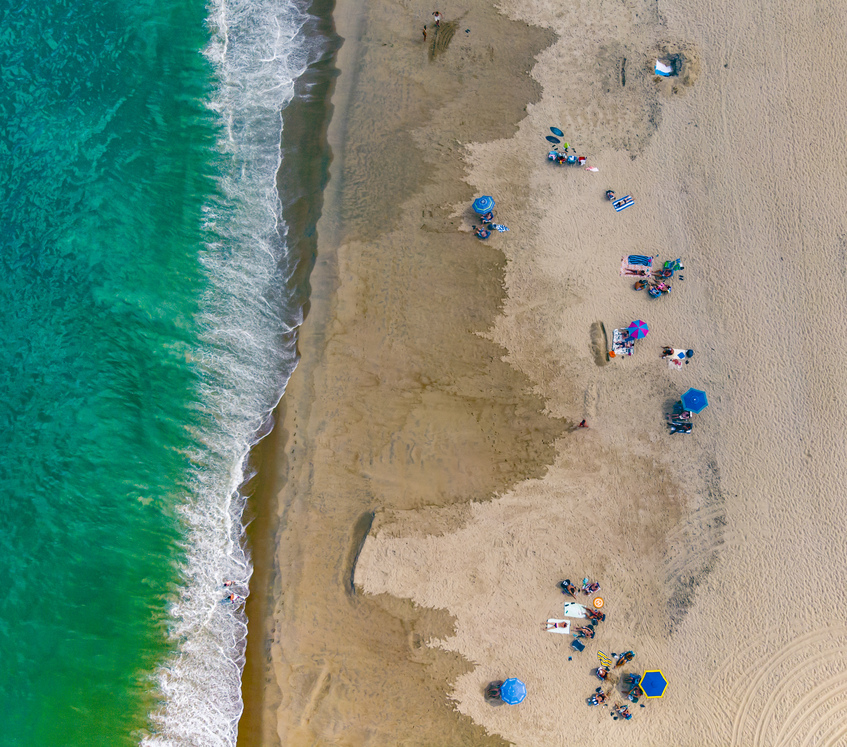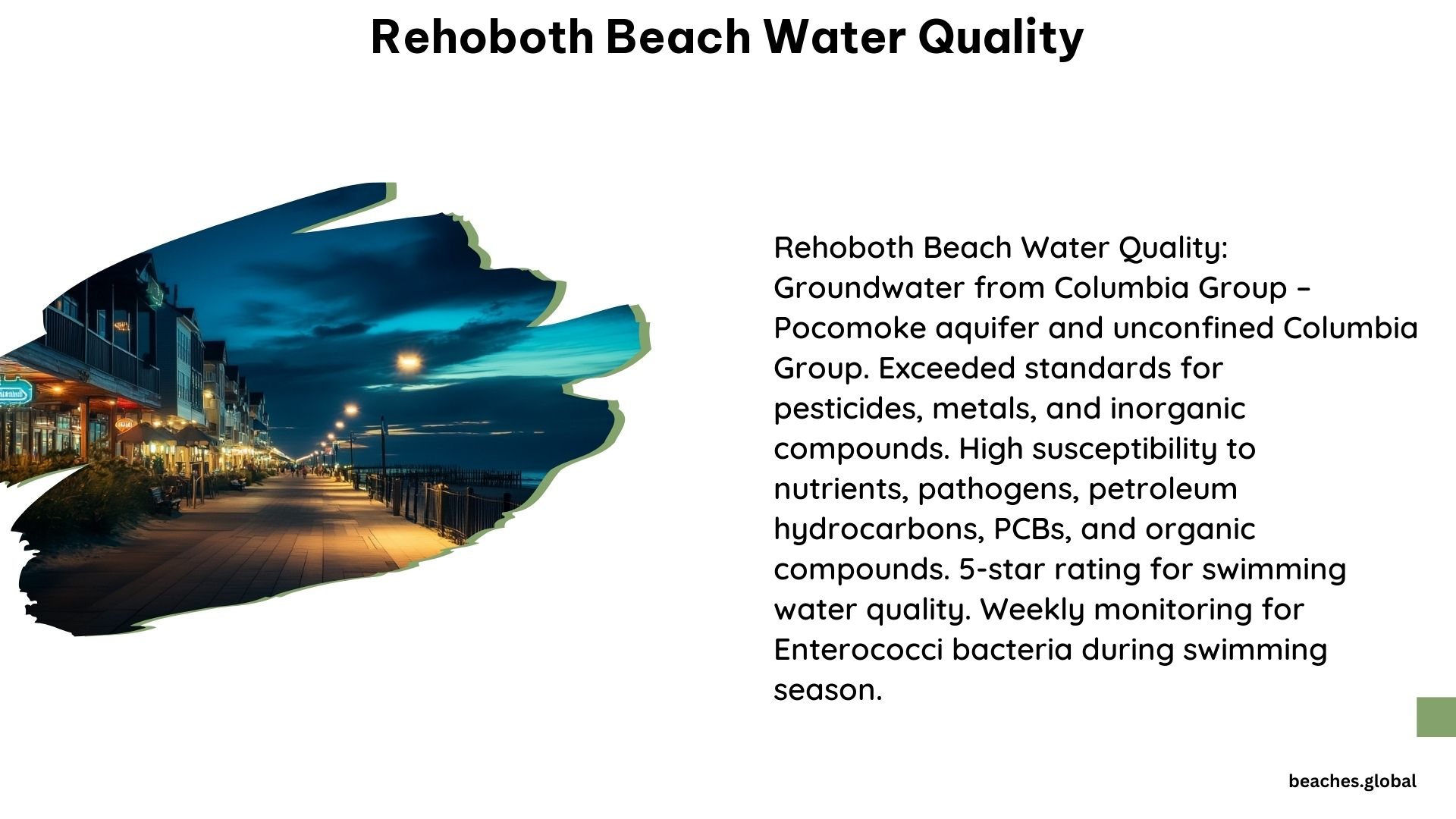Rehoboth Beach, a popular tourist destination on the Delaware coast, is known for its pristine beaches and vibrant coastal community. However, the quality of the water is a crucial factor that can impact the enjoyment and safety of visitors. In this comprehensive guide, we’ll explore the key aspects of Rehoboth Beach’s water quality, providing you with the information you need to make informed decisions during your beach visits.
What is the Drinking Water Quality in Rehoboth Beach?

Rehoboth Beach’s drinking water is sourced from the Columbia Aquifer, a groundwater system that supplies water to the local community. While the water generally meets the standards set by the Environmental Protection Agency (EPA) for drinking water, there are some notable concerns:
- Contaminant Levels: The water has been found to exceed the drinking water standards for certain pesticides, metals, and other inorganic compounds.
- Susceptibility to Contamination: The water source has a high susceptibility to nutrients, pathogens, petroleum hydrocarbons, PCBs, and other organic compounds.
- Detected Contaminants: Fluoride, nitrate, and PFAS (per- and polyfluoroalkyl substances) have been detected in the drinking water.
- Vulnerable Populations: Immuno-compromised individuals, infants, and the elderly may be more susceptible to the potential health risks associated with these contaminants.
How is the Beach Water Quality Monitored in Rehoboth Beach?

The water quality at Rehoboth Beach’s guarded beaches is closely monitored during the peak swimming season, which typically runs from May to September. Here’s how the process works:
- Water Sampling: Water samples are collected weekly from the beaches and tested for the presence of Enterococci bacteria, which are indicators of fecal contamination.
- Bacteria Levels: The Enterococci bacteria levels are measured in colony-forming units per 100 milliliters (cfu/100ml). A green status indicates levels below 104 cfu/100ml, while a red status indicates levels above 104 cfu/100ml.
- Water Quality Advisories: If the bacteria levels exceed the recreational water quality limits, the city will issue water quality advisories to inform the public and recommend against swimming or wading in the affected areas.
What are the Potential Health Risks Associated with Rehoboth Beach Water Quality?
The primary health concern with Rehoboth Beach’s water quality is the presence of elevated levels of Enterococci bacteria, which can indicate the presence of other harmful pathogens. Exposure to these bacteria through swimming or wading can lead to the following health issues:
- Gastrointestinal Illnesses: Symptoms may include diarrhea, vomiting, and abdominal pain.
- Skin Infections: Bacterial infections, such as rashes or open wounds, can occur from contact with contaminated water.
- Respiratory Infections: Inhaling water droplets or mist can lead to respiratory problems, such as sore throat or pneumonia.
It’s important to heed any water quality advisories issued by the city and take appropriate precautions to protect your health and that of your family.
Where Can I Find More Information About Rehoboth Beach Water Quality?
If you have any questions or concerns about the water quality in Rehoboth Beach, there are several resources available:
- Water Department Contact: You can reach out to Robert Downs, the Water Superintendent, at 302-227-3194 for more information.
- Public Meetings: The city holds regularly scheduled meetings on the third Friday of each month at 3:00 p.m. in the Board of Commissioners Room, 229 Rehoboth Avenue, where water quality issues are discussed.
- Water Quality Reports: The city publishes annual reports detailing the water quality and any detected contaminants, which are available online.
By staying informed and taking the necessary precautions, you can enjoy your time at Rehoboth Beach while prioritizing your health and safety.
Conclusion
Rehoboth Beach’s water quality is a complex and multifaceted issue that requires ongoing monitoring and attention. While the drinking water may meet certain standards, the presence of contaminants and the susceptibility to contamination are concerns that should not be overlooked. Similarly, the beach water quality is closely watched, with advisories issued when bacteria levels exceed safe limits.
As a beaches touring enthusiast, it’s essential to stay informed about the water quality in Rehoboth Beach and to take appropriate measures to protect your health and that of your loved ones. By understanding the key aspects of the water quality, you can make informed decisions and have a safe and enjoyable experience at this beautiful coastal destination.
References:
- City of Rehoboth Beach. (2019). Annual Drinking Water Quality Report for 2018. Retrieved from https://www.cityofrehoboth.com/sites/default/files/2022-05/2018CCR_0.pdf
- Swim Guide. (n.d.). Rehoboth Avenue Beach. Retrieved from https://www.theswimguide.org/beach/4466
- City of Rehoboth Beach. (2024). 2024 Water Quality Report. Retrieved from https://www.cityofrehoboth.com/sites/default/files/2024-04/2024CCR.pdf
- Cape Gazette. (2022). UPDATE: Rehoboth, Dewey water quality advisories lifted. Retrieved from https://www.capegazette.com/article/water-quality-advisories-issued-rehoboth-dewey/244009
- Environmental Working Group. (n.d.). EWG Tap Water Database | Rehoboth Beach Water Department. Retrieved from https://www.ewg.org/tapwater/system.php?pws=DE0000723
